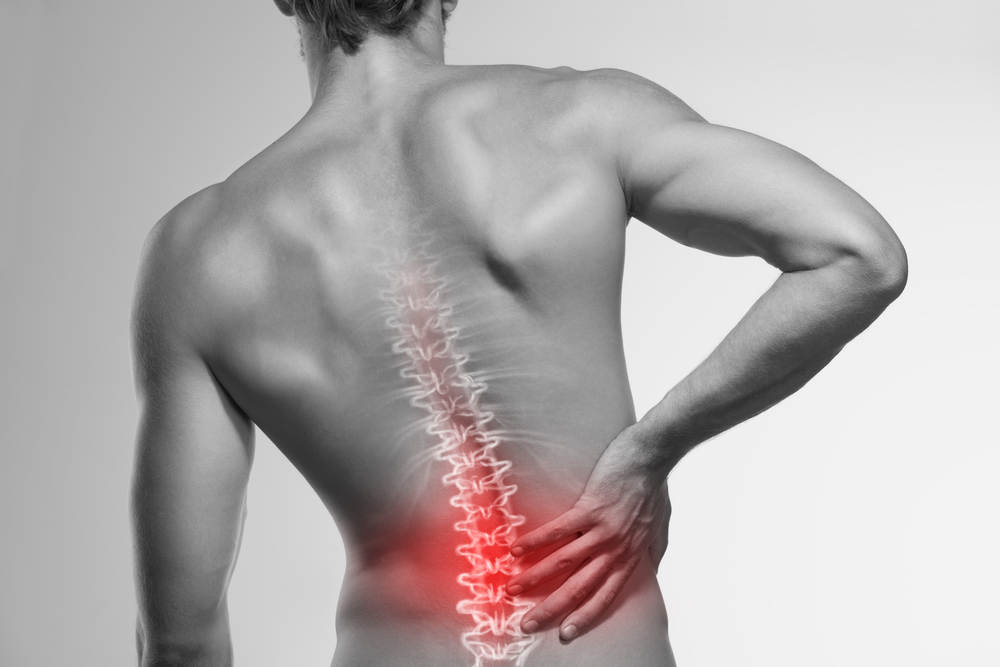
The best back pain treatments in the world won't do much good if your diagnosis is not correct.
Causes and treatments for back pain involve a surprisingly complex set of factors, and unfortunately, the experts don't agree on many aspects of back pain. That's why it's important that you continue to educate yourself on your own condition and treatment program—as no one is more motivated to manage your condition than you.
Find The Precise Cause Of Your Back Pain
Figuring out the cause of your pain is different from finding out what's anatomically wrong with your back.
For example, you may have a degenerating disc that shows up on an MRI scan, but that may not be the cause of your leg pain.
So if you get treated for the degenerating disc, the actual cause of your leg pain may not have been treated and you would not feel any better—just frustrated by the time, expense, pain, etc. involved with treatment. Your leg pain may actually be caused by something else, like a lumbar herniated disc or piriformis syndrome.
See The Correct Specialist
Typically, you will start out with your primary care specialist (a medical doctor, chiropractor, or doctor of osteopathic medicine), who can guide you with your initial treatment options.
If your back pain persists, it is probably time to seek help from a spine specialist, typically a surgeon, physiatrist, anesthesiologist who specializes in pain management, rheumatologist, or possibly a neurologist.
Be aware that within each specialty, some health practitioners may or may not specialize in spinal disorders (some may specialize in joint disorders, neurological conditions, stroke rehabilitation, etc.). We recommend that you see one who specializes in spine medicine. We also recommend that your physician be board certified or board eligible.
Spine Surgery Should Never Be A Guess
Spine surgery is not done on an exploratory basis. The spine surgeon should know what the cause of your pain is prior to the surgery. This is not necessarily the same as knowing what is anatomically wrong with your spine, as you can have disc degeneration or other anatomical lesions that show up on the scan but are not causing pain.
Conversely, some causes of pain will not show up on an MRI scan and cannot be corrected with spine surgery.
MRI Results Are Not Necessarily The Diagnosis
Always remember, your MRI findings are not necessarily the cause of your back pain or neck pain. Many people over the age of 30 have a spine that is showing some wear and tear, but this does not mean that they are in any pain.
Studies have shown that many people with no pain or other symptoms often have some sort of disc problem show up on an MRI scan. In fact, the surgeon will usually know what he or she is looking for (based on your physical exam and medical history) prior to even ordering an MRI scan.
The purpose of the MRI scan is mainly to help confirm the diagnosis and to help the surgeon plan the surgery.
Don't Worry Too Much About Terminology
Many health practitioners use different diagnostic terms to mean the same thing (such as a slipped disc or herniated disc) or use the same term to mean different things (such as bulging disc, which can refer to degenerative disc disease or a herniated disc).
There is little agreement in the medical field as to the precise definition of any of these terms. If you hear your diagnosis referred to in different terms by different practitioners, you may question what the real diagnosis is.
Rather than focusing on the terminology that refers to anatomy, we recommend focusing on the clinical diagnosis—which is the cause of your pain. For more information, see the following resources:
Take charge of your back pain by making sure you have the correct diagnosis before you go forward with treatment. Finding the exact cause of your pain and the correct way to treat it is the best way to rehabilitate your back.
Precision Pain Care and Rehabilitation has two convenient locations in Richmond Hill – Queens and New Hyde Park – Long Island. Call the Richmond Hill office at (718) 215-1888, or (516) 419-4480 for Long Island office, to arrange an appointment with our Interventional Pain Management Specialist, Dr. Jeffrey Chacko.













